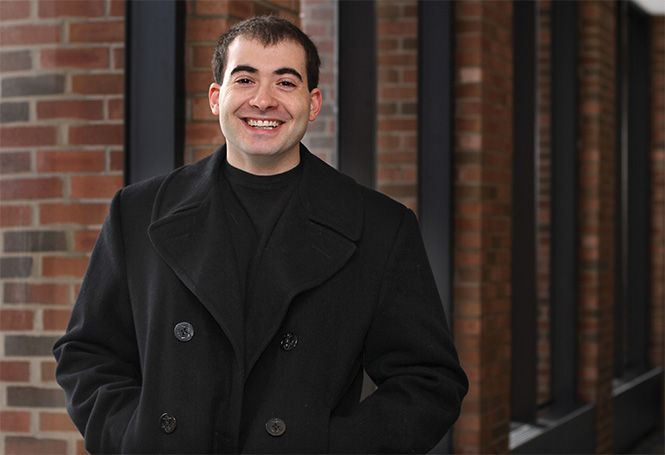Military veterans readjust to student life at Kent State
January 28, 2015
While some people may view soldiers as stoic fighters, veterans often struggle to defend their work and the reality of being in the American military as they ease back into student life.
After the release of movies like “American Sniper” and “Zero Dark Thirty,” civilians have opened their minds to what goes on overseas, but because they have not lived through it themselves it is hard from them to truly know what the military experience is like.
Curtis Cofojohn, a junior political science major said that is his biggest challenge. He struggles to get people to understand the bigger picture of what it means to be a soldier. “Some people have disconnected opinions of who you are because of what you did (and) because of what they have seen on a movie screen,” he said.
Cofojohn believes it is difficult to show the importance of what he and other veterans have done, because civilians have their minds made up. He said that because a majority of Americans have seen certain scenarios played out, like dramatized gunshot sequences or emotional scenes where a fellow soldier is laid down to rest, they assume they know what it is like to give your life to your country.
“Everyone is entitled to their own opinion, that’s why we fight for it,” Cofojohn said.
Kent State University has been named a veteran-friendly university four years in a row by G.I. Jobs, and is credited as one of the top universities to embrace America’s veterans. Even with organizations and people ready to help, these students still face challenges everyday.
“When veterans get into a college environment, it’s a different set up for them,” said Dawn Plug who is the assistant director for the Center for Adult and Veteran Services. “There is a lot of freedom and the classes are much less structured than they are used to.” She says the transition into a college environment can be a major problem for any student who has been away from school for a long period of time.
Veterans often struggle with learning how to act in a classroom setting and day-to-day life as they transition from military careers to student life.
Ryan Lewand, a junior criminology and justice studies major, said his life experience and time in the military sometimes puts him at a disadvantage in the classroom.
“A lot of my courses are freshman classes, so most people are at a minimum four years younger than me,” Lewand said. “It’s hard to relate with them. Sometimes I just feel too old and out of place.”
Soldiers are required to maintain high expectations and behave a specific way while students are not expected to have the same strict measurements and schedule of the military lifestyle.
“With the military it’s a completely different mindset than being a student,” Brandon Crites, a sophomore physical education and sports performance major said. He said serving in the military gives you a sense of maturity that is not typically found in a college classroom.
Cofojohn agrees, saying it is hard to leave the military mindset and learn to be a civilian again. “No matter how hard you try, how long or little you served, the experience changes you and everything else you do,” he said.
Campus organizations and clubs can also help in providing an environment where former military members can feel a part of student life again. Cofojohn, who is the president of the Interfraternity Council and a brother of Phi Kappa Tau, said Greek life was a huge help during his transition.
“The Greek community itself pushes you just like the military does,” Cofojohn said. “Some have called the military a bigger fraternity. You earn everything you get.”
The Veterans Club is also an important meeting place for student veterans. The men, who are all members of the Veterans Club, agree it is beneficial to have a place where you can go and be the person you were when you served.
“People who understand what you went through, or at least a version of it, and are there to talk about it, laugh about it with you (which) is great,” said Lewand.
Contact Sky Fought at [email protected]du.

























